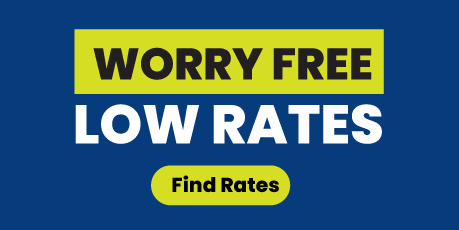Does a preapprovals-affect-credit-score


Will a Mortgage Pre-Approval affect or hurt your Credit Score?
Yes, a mortgage pre-approval can affect your credit score. When you apply for a pre-approval, the lender will perform a hard inquiry on your credit report, which can lower your score by a few points.
The hard credit inquiry impact to the credit score is usually small and temporary. Your credit score should recover within a few months if you continue to make timely payments on your other accounts.
It's important to know that if you apply for credit for multiple different types of credit, like credit cards, auto loans, and personal loans within a short period of time, it can have a more significant negative impact on your credit score.
Does Getting Preapproved lower your Credit Score so much that lender will offer a higher interest rate loan?
In most cases the answer is no. For mortgage loans, interest rates are quoted based upon grouped credit score ranges.
These credit score ranges are grouped in 20-point increments or tiers. For example, 600 to 619, or 620 to 639 and 640 to 659 tiers all have slightly different interest rates or pricing associated with a specific interest rate offered.
When a hard pull credit inquiry is made, in most cases the credit score will be temporarily lowered by a just a few points, which should have an insignificant effect on the terms of financing being offered to you.
If you currently have a credit score of 661, and your hard credit inquiry lowers your credit score to 651, then your new credit score will adversely change the pricing associated with a specific interest rate offer by relatively small amount.
Therefore, getting preapproved for a mortgage may have a very small effect on the terms offered if your credit score tier is lowered; however, the financial impact to the borrower is usually insignificant.
Rates 1% lower than most banks at Equifund Mortgage® | See real pre-approved loan offers.
Get Pre-Approved Online. See Loan Offers in 3 minutes.
Why getting pre-approved affects your credit score?
Too many hard credit inquiries in a short period of time, can send a message to potential creditors that the applicant is attempting to access too many lines of credit, which is not normal and suggest higher risks to the creditor.
Therefore, the credit score algorithms account for this elevated risk warning by decreasing the applicants credit score.
The three credit bureaus, Experian, EquiFax and Transunion all offer a “window of time” to shop for financing on mortgages.
This gives borrowers a safe window of time to shop for mortgages and loan preapprovals.
Multiple inquiries for the same purpose (such as mortgage pre-approvals) made within a short period of time (typically 14-45 days) are usually treated as a single inquiry and will have a smaller impact on your credit score than if each inquiry was counted separately.
This is known as rate shopping and is designed to allow consumers to compare offers without being penalized for multiple inquiries.
How much traditional pre-approvals impact your credit?
A traditional pre-approval can have a small impact on your credit score. The exact impact depends on several factors, including the number of lenders you apply to and the time frame in which you apply.
When you apply for a pre-approval, the lender will typically perform a hard credit inquiry, which can lower your credit score by a few points.
As mentioned above, if you apply for multiple pre-approvals within a short period of time (usually around 14-45 days, depending on the credit scoring model), they will typically be treated as a single inquiry and will have a negligible impact on your score.
This is because credit scoring models recognize that consumers may shop around for the best rates and terms when applying for credit.
Remember the impact of a hard credit inquiry on your credit score is usually small and temporary. Your score should recover within a few months if you continue to make on-time payments and maintain good credit habits.
How long will your credit be impacted by a traditional pre-approval?
The impact on your credit from a traditional mortgage pre-approval typically lasts for a short period of time, usually around 14 to 45 days, under the condition that the applicant is not continuously applying for additional lines of credit like credit cards, and personal loans.
During this loan shopping time period, multiple credit checks for mortgage pre-approvals are often treated as a single inquiry by the credit reporting agencies.
This is because it's understood that people may shop around for the best mortgage rate and terms before deciding on a lender.
Rates 1% lower than most banks at Equifund Mortgage® | See real pre-approved loan offers.
Get Pre-Approved Online. See Loan Offers in 3 minutes.
How hard credit and soft credit inquiries affect your credit score?
Credit inquiries can affect your credit score, but the impact can vary depending on the type of inquiry and the frequency of the inquiries.
There are two types of credit inquiries, hard inquiries, and soft inquiries.
Hard Credit Inquiries
A hard inquiry occurs when a lender or creditor checks your credit report as part of a credit application, such as for a mortgage or credit card.
Too many hard inquiries that fall outside the “loan shopping time period of 15-45 days, can have a negative impact on your credit score, as they signal to lenders that you are actively seeking credit and may be a higher risk borrower.
Each hard inquiry can typically lower your credit score by a few points, but the impact is usually small and temporary.
Soft Credit Inquiries
A soft inquiry occurs when you check your own credit report or when a lender checks your credit for a pre-approval or promotional offer.
Soft inquiries do not affect your credit score at all. They are only visible to you and do not signal to lenders that you are actively seeking credit. Therefore, you can shop around for mortgage quotes from multiple lenders without worrying about damaging your credit score as long as the lender uses a soft credit inquiry.
NOTE: Remember, credit bureaus have systems in place to recognize when you are shopping around for the best mortgage rate and will often count multiple hard inquiries from mortgage lenders as a single inquiry when calculating your credit score.
This means that if you keep your mortgage shopping within a short timeframe, such as two weeks, the impact on your credit score is likely to be minimal.
Rates 1% lower than most banks at Equifund Mortgage® | See real pre-approved loan offers.
Get Pre-Approved Online. See Loan Offers in 3 minutes.
Will a hard credit inquiry lower your credit score?
Yes, a hard credit inquiry will lower the credit score by a few points. This hard credit inquiry occurs when a lender checks your credit report to make a lending decision, such as for a mortgage or credit card application.
Hard inquiries can lower your credit score by a few points for a few months and the inquiry will be documented on the applicant’s credit report, listing the creditor’s name, and date of the inquiry for two years.
Multiple hard inquiries for different lines of credit like personal loans, credit cards and mortgages all within a short period of time can have a greater impact on your score and may suggest to lenders that you are applying for credit excessively.
Using soft inquiries, such as when you check your own credit score or receive pre-approved offers, do not affect your credit score.
Do soft credit inquiries do not typically lower your credit score?
Yes, a soft credit inquiry has no effect on your credit score or credit report. Soft credit inquiries are inquiries that are made for informational purposes and do not affect your credit score.
Examples of soft inquiries include checking your own credit score, pre-approvals for credit offers, and background checks by employers. Soft inquiries are not visible to lenders and do not impact your creditworthiness.
What's the mortgage credit pull window?
The mortgage credit pull window is the allowed time period to shop for a mortgage and allows multiple credit inquiries while shopping for a mortgage in a short period of time.
During this “mortgage credit pull window” the credit bureaus will treat these multiple credit inquiries for the purpose of obtaining a mortgage as a single inquiry by credit scoring models.
This window typically lasts for 14-45 days, depending on the credit scoring model used. During this window, if multiple lenders pull your credit for the purpose of pre-approving you for a mortgage, it will only count as a single inquiry on your credit report, thus minimizing the impact on your credit score.
However, it's important to note that this window may not apply to all types of credit inquiries, so it's always a good idea to check with your lender or credit bureau to confirm the specific details of your situation.
Does getting multiple preapprovals hurt your credit score?
Getting several mortgage preapprovals for a mortgage can have a small negative impact on your credit score, but it's generally minimal.
When you apply for a preapproval, the lender will typically make a hard credit inquiry to access your credit report and credit score which can result in a small decrease in your credit score.
However, if you apply for multiple preapprovals within a short period of time (usually within 14-45 days, depending on the credit scoring model), the credit bureaus will usually treat them as a single inquiry and the impact on your credit score will be minimized.
This is known as the rate shopping period of time, and it's designed to allow consumers to compare loan offers without being penalized for multiple inquiries.
So, if you're shopping for a mortgage, it's generally a good idea to apply for multiple preapprovals within a short period of time to minimize the impact on your credit score.
Rates 1% lower than most banks at Equifund Mortgage® | See real pre-approved loan offers.
Get Pre-Approved Online. See Loan Offers in 3 minutes.
Can you get denied a mortgage after being preapproved?
Yes, it is possible to get denied a mortgage after being preapproved. Preapproval is not a guarantee that a mortgage lender will provide a loan.
The lender can still deny the mortgage application if they discover new information about the borrower's financial situation or creditworthiness that was not disclosed during the preapproval process.
For example, if the borrower loses their job or takes on new debt before the loan closes, the lender may decide to deny the mortgage.
It's important to maintain the same financial situation during the preapproval process and the time leading up to closing on the loan to minimize the risk of being denied.
Do mortgage quotes affect credit scores?
Mortgage quotes, also known as mortgage interest rate quotes, typically do not affect credit scores. When a lender provides a mortgage quote, they usually perform a "soft inquiry" or a "soft pull" of your credit report, which does not have any impact on your credit score.
However, if you proceed with the mortgage application process, the lender will perform a "hard inquiry" or a "hard pull" of your credit report, which may temporarily lower your credit score.
It's important to note that multiple hard inquiries within a short period of time for the same purpose (such as shopping for a mortgage) are typically grouped together and treated as a single inquiry, so they should not have a significant impact on your credit score.
How to shop for a mortgage without hurting your credit score?
Shopping for the best mortgage terms will have a significant effect on the health of your short term and long-term finances. Not all mortgage lenders provide the same interest rates and closing cost.
A 1% lower interest rate on a 30-year mortgage is equal to approximately 10 percent of the price of a home.
Using an online digital mortgage marketplace, you can obtain an instant mortgage prequalification approval, and identify the lowest mortgage rate and term loan from multiple National mortgage lenders.
6 tips for shopping for a mortgage without hurting your credit score:
-
Do your research: Before you start shopping for a mortgage, do your research on the types of loans available, interest rates, and lenders. This will help you narrow down your options and avoid unnecessary credit inquiries.
-
Check your credit report: Make sure your credit report is accurate before you start applying for mortgages. You can request a free copy of your credit report from each of the three credit bureaus once a year at annualcreditreport.com.
-
Get prequalified: Getting prequalified for a mortgage can give you an idea of how much you can afford and which lenders may be a good fit for you. This typically involves a soft credit inquiry, which doesn't impact your credit score.
-
Limit your applications: Only apply for mortgages that you're serious about and limit the number of applications you submit. Each application will result in a hard credit inquiry, which can lower your credit score if you fall outside the window of time to shop for a mortgage.
-
Apply within a short period of time: If you do apply for multiple mortgages, try to do so within a short period of time, such as two weeks. Credit scoring models typically group inquiries made within a short time frame as a single inquiry, minimizing the impact on your credit score.
-
Don't close credit accounts: Closing credit accounts can lower your credit score, so avoid doing so while you're shopping for a mortgage.
By following these tips, you can shop for a mortgage without hurting your credit score.
Rates 1% lower than most banks at Equifund Mortgage® | See real pre-approved loan offers.
Get Pre-Approved Online. See Loan Offers in 3 minutes.
How many points does your credit score go down for an inquiry?
The exact number of points your credit score may decrease due to an inquiry varies and depends on several factors, including the type of inquiry (hard or soft), the number of inquiries within a certain time period, and the overall content of your credit report.
In general, a hard inquiry may lower your credit score by about 5 to 10 points, although the impact may be higher for those with shorter credit histories or if multiple inquiries occur within a short time frame. Soft inquiries, on the other hand, typically do not impact your credit score at all.
It's important to note that while a credit inquiry may temporarily lower your credit score, the impact is generally small and typically fades within a few months. Additionally, the impact of inquiries decreases over time, and after one year, they no longer affect your credit score at all.
Why should I get preapproved by more than one lender?
For most homeowner’s and homebuyers, a mortgage is their largest debt and consumes 25 to 38 % of their annual income.
Therefore, it is prudent to not overpay finance charges by failing to capture the lowest rate mortgage loan in the market, which will cost most homeowners approximately 10% in lost purchasing power.
4 benefits of getting preapproved by multiple lenders
-
Comparison of Offers: By getting preapproved by multiple lenders, you can compare their offers in terms of interest rates, fees, and other terms. This will allow you to choose the best option for your financial situation.
-
Negotiating Power: When you have multiple preapprovals, you have more negotiating power with lenders. You can use the offers from other lenders to negotiate a better deal with your preferred lender.
-
Backup Options: Having multiple preapprovals provides backup options in case one lender falls through or doesn't offer the terms you need.
-
Better Chance of Approval: Some lenders have more stringent qualification requirements than others. By getting preapproved by multiple lenders, you increase your chances of approval if one lender denies your application.
It's important to note that applying for multiple preapprovals may result in multiple hard credit inquiries, which could temporarily lower your credit score. However, if you apply for preapprovals within a short period of time, usually 14-45 days depending on the credit scoring model, they will typically count as a single inquiry and have a minimal impact on your credit score.
Will shopping around for a mortgage hurt my score?
Shopping around for a mortgage typically involves multiple lenders pulling your credit report, which can result in multiple hard inquiries on your credit report.
However, credit scoring models are designed to consider that consumers may shop for the best loan terms, and they typically group multiple inquiries for the same type of loan (such as a mortgage) within a specific time period (usually 14-45 days) as a single inquiry to minimize the impact on your credit score.
This is known as the "rate shopping" or "mortgage credit pull" window. If you limit your rate shopping to this window, the impact on your credit score should be minimal.
It's always a good idea to check with the lender to make sure they are using a soft credit inquiry for your pre-approval, which will not affect your credit score at all.
Rates 1% lower than most banks at Equifund Mortgage® | See real pre-approved loan offers.
Get Pre-Approved Online. See Loan Offers in 3 minutes.
What FICO says about rate shopping and credit scores?
FICO, the company that develops credit scoring models, has specific guidelines in place for rate shopping and credit scores.
According to FICO, multiple inquiries related to a single loan application (such as a mortgage) made within a 45-day period are typically counted as a single inquiry for credit scoring purposes. This is known as the "rate shopping" window.
During this 45-day period, credit inquiries for the same type of credit will not have a significant impact on your credit score. This allows consumers to shop around for the best rates and terms on a mortgage or other loan without being penalized for multiple credit inquiries.
However, it's important to note that if you continue to make credit inquiries beyond the 45-day window, it could potentially harm your credit score. Additionally, if you have a limited credit history or a lower credit score, multiple credit inquiries may have a more significant impact on your score.
How much does a mortgage affect credit score?
Obtaining a mortgage can affect your credit score in several ways. The process of applying for a mortgage typically involves a hard credit inquiry, which can temporarily lower your credit score by a few points. Additionally, taking on a new mortgage loan will increase your overall debt load, which can also have an impact on your credit score.
However, as you make timely payments on your mortgage, your credit score can also benefit from the positive payment history. Consistently paying your mortgage on time and in full can help improve your credit score over time.
It's important to note that the exact impact on your credit score will depend on a variety of factors, such as your credit history, the size of the mortgage loan, and how you manage your payments. Overall, obtaining a mortgage can have both positive and negative effects on your credit score, but responsible borrowing and timely payments can help improve your credit over time.
How credit scores affect mortgage rates?
Credit scores can have a significant impact on mortgage rates. Generally, the higher your credit score, the lower your interest rate will be. This is because lenders view borrowers with higher credit scores as less risky, and therefore, are willing to offer them lower interest rates.
For example, a borrower with a credit score of 760 or above may qualify for the best interest rates available, while a borrower with a credit score of 620 may be offered a higher interest rate. This difference in interest rates can result in thousands of dollars in additional interest payments over the life of the loan.
It's important to note that credit scores are not the only factor lenders consider when determining mortgage rates. Other factors, such as your debt-to-income ratio, down payment amount, and loan term, can also affect your interest rate.
Compare quotes from multiple lenders without fear of lowering your credit score.
If you want to compare quotes from multiple lenders without fear of hurting your credit score, there are a few steps you can take:
-
Do your research: Before you start reaching out to lenders, do some research on their reputation, rates, and terms. You can use online tools and resources to compare different lenders and get an idea of what you can expect.
-
Get pre-qualified: Start by getting pre-qualified with a few different lenders. Pre-qualification involves a soft credit check that won't impact your credit score. This will give you an idea of what you can afford and what rates you might qualify for.
-
Limit your applications: Once you've narrowed down your options, limit your applications to a few lenders that you feel are the best fit. Each application will trigger a hard credit inquiry, which can impact your score. By limiting your applications, you can minimize the impact.
-
Time your applications: Try to time your applications so that they fall within a short period, ideally within a 14- to 45-day window. This way, they will be treated as a single inquiry and have less of an impact on your score.
-
Monitor your credit report: Check your credit report regularly to ensure that all inquiries are legitimate and accurate. If you notice any errors, dispute them with the credit bureaus.
Rates 1% lower than most banks at Equifund Mortgage® | See real pre-approved loan offers.
Get Pre-Approved Online. See Loan Offers in 3 minutes.
The easiest way to compare mortgage loan offers without confusion.
The easiest way for a consumer to compare mortgage loan offers is to use the annual percentage rate, also known as the APR.
This annual percentage rate accounts for all finance charges in addition to the mortgage note interest rate.
The APR includes the cost of buying down the interest rate (discount points), origination fees, mortgage insurance, and upfront funding fees that are associated with FHA, VA and USDA mortgage loans.
The loan offer with the lowest APR will mathematically be the best loan choice for you.
To compare real loan offers within 3 minutes you can use an online mortgage market that quickly prequalifies the applicant and identifies the lowest APR loan at the top of the list.
Mortgage Pre-Qualification Calculator
What is mortgage pre-qualification vs. preapproval?
Mortgage pre-qualification is different than a preapproval. It is an initial assessment of your creditworthiness and ability to afford a mortgage loan.
It is a process that allows you to provide basic financial information to a lender, who will then provide an estimate of how much you may be able to borrow for a home purchase.
Pre-qualification does not involve a thorough review of your credit report or an in-depth analysis of your financial situation, and it is not a guarantee that you will be approved for a mortgage loan.
Rather, it is a preliminary step that can help you determine how much house you can afford and can also help you identify any potential issues or areas for improvement in your credit and financial profile.
What does a Mortgage Prequalification Calculator do?
A good mortgage prequalification calculator will give users the ability to submit their basic information and verify eligibility for loan approval using the information the user submitted.
If this calculator is provided by an online Digital Mortgage Marketplace, like EquiFund Mortgage, then the user will be able to identify the lowest annual percentage rate loan and obtain initial prequalified status all in one user session.
No credit pulls, spam calls or emails. Just stupid low rates.
Get Pre-Qualified or Try the Mortgage Calculator.
7 Steps of Mortgage shopping for preapprovals and loans
Shopping for a mortgage can seem overwhelming, unless you have the right tool to quickly scan the mortgage marketplace to identify the best loan as determined by having the lowest annual percentage rate.
Here are some steps to follow:
-
Review your credit report or score: Your credit score is a key factor in getting approved for a mortgage and in determining your interest rate. Review your credit report for errors and address any issues that could lower your score.
-
Determine your budget: Before shopping for a mortgage, you should have an idea of how much you can afford to spend on a home. Use a mortgage calculator to estimate your monthly payments and budget accordingly.
-
Use mortgage prequalified calculator: Use an online mortgage marketplace to obtain your initial pre-qualification and identify the lowest annual percentage rate loan that fits your budget.
-
Get pre-approved: Now that you are pre-qualified and found the best mortgage loan matched to your budget you will want to get a full mortgage pre-approval. To get pre-approved you will have to provide the mortgage lender with your income and asset documents, employment history, and authorization to pull your credit. The final result is a verified mortgage pre-approval letter.
-
Underwriting Conditions: After submitting your documents and obtaining a full verified mortgage pre-approval, the loan application and supporting documents will be processed and underwritten. The underwriting will forward a request for additional items if needed.
-
3 Day Closing Disclosure: Once your loan has all conditions cleared, known as “CTC” clear to close, you will receive a closing disclosure that highlights all loan cost and transaction details, like fees, escrows for taxes and insurance, interest rate, APR and mortgage insurance.
-
Close the loan: After your application is approved, you'll need to close the loan. This involves signing the final loan documents and paying closing costs. Make sure you understand all the terms of the loan before signing.
By following these steps, you can successfully navigate the mortgage shopping process and find the right mortgage for your needs and budget.







